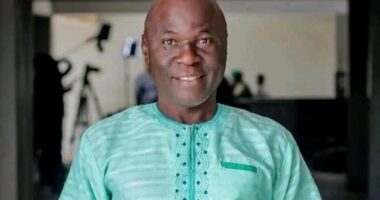While Jammu returned its two sitting BJP MPs to the Lok Sabha, Kashmir sprung a surprise – not one but two. While jailed Independent candidate Engineer Rashid defeated former chief minister Omar Abdullah, Peoples Democratic Party (PDP) president and former chief minister Mehbooba Mufti lost to a National Conference Gujjar leader, Mian Altaf. The margin of defeat of the two former chief ministers of J&K was also a surprise. While Mufti lost by close to three lakh votes in Anantnag-Rajouri, Rashid defeated Omar by over two lakh votes in Baramulla. The third Lok Sabha seat in Kashmir, Srinagar, was won by the NC’s Aga Ruhullah Mehdi by a comfortable majority. In Ladakh’s Leh Lok Sabha seat, Independent candidate Mohammad Haneefa, a former district president of the NC and seen as the party’s proxy, prevailed over BJP and Congress candidates. Acknowledging their defeat, Mufti and Omar said they “respect the verdict of the people”. Mufti posted: “I thank my PDP workers and leaders for their hard work and support despite all the odds. My deepest gratitude to the people who voted for me. Winning & losing is part of the game & won’t deter us from our path. Congratulations to Mian sahab for his victory”. While congratulating Rashid, Omar posted on X: “I don’t believe his victory will hasten his release from prison nor will the people of North Kashmir get the representation they have a right to, but the voters have spoken and in a democracy that’s all that matters.” Rashid is lodged in New Delhi’s Tihar Jail since 2019 in an alleged money laundering case related to terror funding. Omar talked about the scrapping of J&K’s special status and statehood, as well as development. But Rashid’s campaign, run by his sons Abrar Rashid (23) and Asrar Rashid (21), revolved around the “oppression” against their father, without making any promises. Rally after rally, they made just one appeal – “Vote for our father as it will help secure his release from jail”. In a Valley with no avenues to register their protest since the abrogation of J&K’s special status in 2019, followed by a total clampdown, this appears to have resonated with the youth and also appealed to the emotions of women voters. Rashid came from behind to win a contest that was initially seen as one between Omar and People’s Conference’s Sajad Lone, with the two weeks of intense campaigning by his sons paying off. Apart from Omar, the loss is a massive setback for Lone, whose hopes of making it to Parliament ended in a third-place finish. Mufti, who was always seen as facing a tough contest from Anantnag-Rajouri, a seat whose contours saw huge changes after delimitation, trailed behind the NC’s Mian Altaf, a spiritual leader of the Gujjars, from the start. This is another blow to the PDP, which hasn’t recovered since its tie-up with the BJP – ended abruptly by the latter – was seen as having paved the way for the 2016 unrest in the Valley, Central rule and eventual abrogation of Article 370. While Mufti was kept detained for a long time after the August 5, 2019, abrogation by the Centre, her party disintegrated, and saw most of its leadership leave for other parties. Mufti has been trying to recover ground in the past five years, with fierce criticism of the BJP and its policies specific to Kashmir and Muslims. However, if that didn’t prove enough, the fact that the NC chose not to align with it dealt a further blow to the PDP chief. The other PDP candidate whom the party’s hopes rested on, its popular youth leader Waheed ur Rehman Para, also suffered a massive defeat, against the NC’s Aga Ruhullah Mehdi in Srinagar. Another significant feature of the results was that the parties seen as “proxies” of the BJP in the Valley – Altaf Bukhari’s Apni Party, Sajad Lone’s People’s Conference and Ghulam Nabi Azad’s Democratic Progressive Azad Party (DPAP) – failed to make a mark. While Apni Party candidates and Lone stood third in Srinagar, Anantnag-Rajourri and Baramulla, respectively, DPAP candidates finished even further behind. In Jammu province, however, the BJP’s dominance continued, with the party retaining both the Udhampur-Doda and Jammu seats comfortably. Both its candidates – Dr Jitendra Singh, the Union Minister of State, PMO, and Jugal Kishore Sharma – won for the third time from Udhampur-Doda (earlier known as Udhampur) and Jammu. The two BJP leaders won despite the impression of public anger against them for “not being available readily”, a complaint picked up by their rivals as a poll issue. However, the popularity of Prime Minister Narendra Modi and his schemes is believed to have helped them win. In Ladakh, after both the Congress and BJP fielded Buddhist leaders belonging to the Leh district of Ladakh – Tsering Namgyal and Tashi Gylason – as their candidates, the people in Muslim-dominated Kargil part of Ladakh rallied behind local NC leader Haneefa. Consequently, the NC’s entire Kargil unit rebelled, citing differences with the party leadership and the choice of the INDIA alliance candidate for the region. Haneefa contested as an Independent, while other candidates from Kargil withdrew their nominations in his favour. The politico-religious bodies of the Kargil region also placed their bets on Haneefa. This led to a split in votes between the Congress and BJP candidates, moving the scales in favour of Haneefa. His win reflects the yearning within Kargil for greater political representation, after two previous MPs belonging to Leh.
Subscribe
Login
0 Comments





